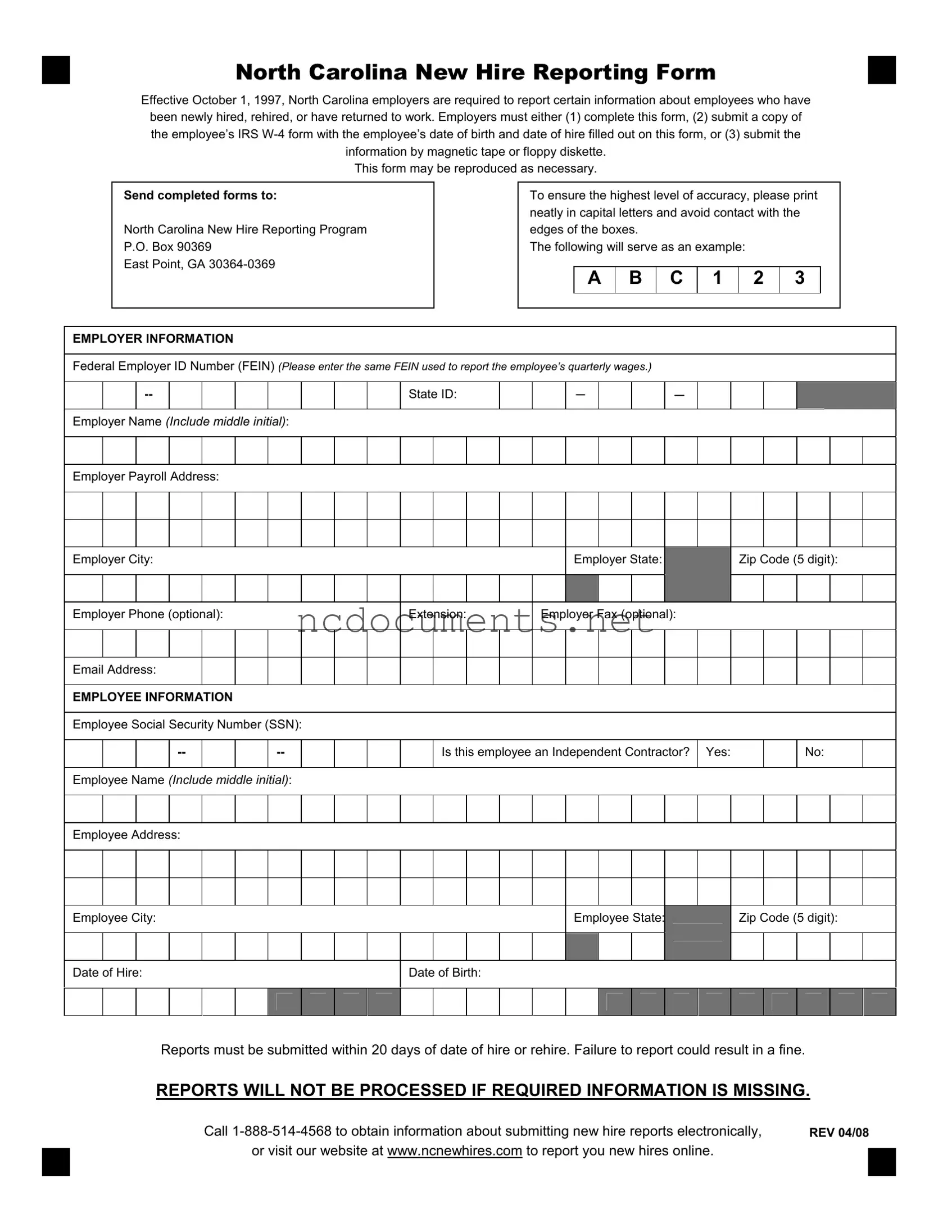The North Carolina New Hire Reporting Form shares similarities with the Federal New Hire Reporting Form. Both documents serve the purpose of reporting newly hired or rehired employees to the appropriate authorities. The Federal form requires similar information, such as the employee's name, Social Security number, and date of hire. This ensures compliance with federal regulations aimed at tracking employment for tax and child support purposes.
Another document that resembles the North Carolina Reporting Form is the IRS Form W-4. While the W-4 primarily focuses on tax withholding, it also collects essential information about the employee, including their name, address, and Social Security number. Employers can use the W-4 as a means of fulfilling their reporting obligations if they include the date of hire and date of birth on the form.
The State Unemployment Insurance (UI) Claim Form is also similar. This document is used to report employee information to state unemployment agencies. Like the North Carolina Reporting Form, it requires details such as the employee's name and Social Security number. Both forms aim to maintain accurate records for state benefits and taxation.
Additionally, the Employee Eligibility Verification Form (I-9) is another related document. The I-9 verifies an employee's identity and eligibility to work in the United States. It requires personal information, including the employee's name and Social Security number, similar to the North Carolina form. Both forms help employers comply with legal requirements regarding employment verification.
The Wage and Tax Statement (Form W-2) is also comparable. While the W-2 is used for reporting annual wages and taxes withheld, it contains crucial employee information, including their name and Social Security number. This form is essential for tax reporting and is a continuation of the employer's responsibility to report employee data accurately.
The North Carolina Reporting Form is similar to the State Tax Withholding Form. This document collects information necessary for state income tax withholding. Both forms require the employee’s name, Social Security number, and other identifying details. This ensures that employers withhold the correct amount of taxes from employees' paychecks.
Another relevant document is the Employee Information Form, often used by employers for internal record-keeping. This form gathers similar data, such as the employee's name, address, and Social Security number. While its primary purpose is for the employer's records, it serves a similar function in collecting essential employee information.
For those interested in employment contracts, understanding the intricacies of a Non-compete Agreement can be vital. This document helps protect businesses from potential competition by restricting employees after they leave. More information can be found in the California Non-compete Agreement details.
The Child Support Enforcement Form also bears similarities to the North Carolina Reporting Form. This document is used to report newly hired employees to state child support agencies. It collects similar information, such as the employee's name and Social Security number, to assist in tracking child support obligations.
Lastly, the Payroll Deduction Authorization Form is comparable. This form allows employees to authorize deductions from their paychecks for various purposes. It requires personal information, including the employee's name and Social Security number, similar to the North Carolina Reporting Form. Both documents serve to ensure accurate record-keeping and compliance with legal obligations.

